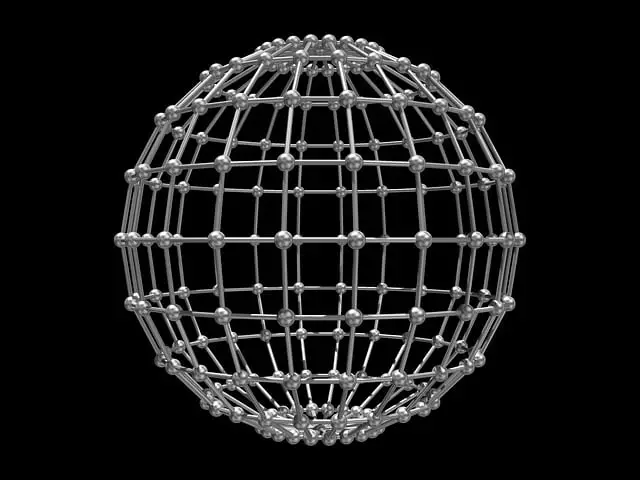Sports nutrition, a strategic approach, leverages natural substances like White Maeng Da and White Bali kratom for unique athletic benefits. White Maeng Da enhances post-workout recovery through energy and pain relief, while White Bali promotes mental focus and calming effects. Balanced diets rich in macronutrients (carbohydrates, proteins, fats) support muscle growth, with micronutrients (vitamins, minerals) ensuring optimal physiological functions. Hydration is key, and teas like White Maeng Da reduce stress during workouts, while White Bali aids post-workout recovery. Tailoring nutrition to individual needs, tracking macronutrients, and consulting experts optimizes performance for all fitness levels.
Reach your peak physical conditioning with sports nutrition—the science behind athletic performance. This comprehensive guide explores key areas, from understanding the foundation of macronutrients and micronutrients to practical tips for integrating them into your training routine. Discover powerful contrasts like White Maeng Da vs. White Bali, essential elements for muscle growth and recovery, and effective hydration strategies. Uncover hidden heroes—vitamins, minerals, and more—to enhance your fitness journey.
- Understanding Sports Nutrition: The Foundation of Athletic Performance
- Unlocking Potential: White Maeng Da vs. White Bali – A Comparative Analysis
- Macronutrients and Their Role in Muscle Growth and Recovery
- Micronutrients: Vitamins, Minerals, and the Hidden Heroes of Fitness
- Hydration Strategies for Optimal Physical Conditioning
- Practical Tips for Integrating Sports Nutrition into Your Training Routine
Understanding Sports Nutrition: The Foundation of Athletic Performance

Sports nutrition is a crucial aspect that often goes unnoticed in the quest for peak physical conditioning. It’s more than just fueling your body; it’s a strategic approach to enhance athletic performance and recovery, especially when considering the vast differences between various strains of kratom, such as White Maeng Da vs. White Bali. These two popular varieties offer distinct experiences due to their unique chemical profiles, with Maeng Da known for its potent energy boost and pain-relieving properties, while Bali is celebrated for its calming effects and potential anxiety reduction.
Understanding how these natural substances interact with your body’s systems can provide valuable insights into optimizing your nutrition strategy. Athletes and fitness enthusiasts should focus on a balanced diet rich in macronutrients (carbohydrates, proteins, and fats) and micronutrients (vitamins and minerals). This foundation supports muscle growth, repair, and recovery, which are essential for pushing athletic boundaries. Additionally, staying hydrated is paramount, as proper water intake ensures optimal bodily functions and enhances performance, especially when engaging in intense physical activities.
Unlocking Potential: White Maeng Da vs. White Bali – A Comparative Analysis

In the pursuit of peak physical conditioning, sports nutrition plays a pivotal role in fueling performance and recovery. Among the vast array of ingredients, two stand out for their unique properties: White Maeng Da and White Bali. These two types of white veined kratom, native to different regions, offer distinct benefits that can enhance athletic capabilities.
White Maeng Da, known for its potent analgesic and stimulant effects, has been a favorite among athletes for its ability to alleviate pain and boost energy levels. Its fast-acting nature makes it ideal for post-workout recovery, helping muscles relax and repair faster. Conversely, White Bali kratom is celebrated for its calming yet invigorating properties. It promotes better sleep quality, which is crucial for muscle growth and overall well-being, while also enhancing focus and mental clarity during training sessions. This comparative analysis highlights the versatility of these natural substances in tailoring nutritional support to diverse athletic needs, ultimately unlocking individual potential.
Macronutrients and Their Role in Muscle Growth and Recovery

Macronutrients, particularly carbohydrates, proteins, and fats, play a pivotal role in muscle growth and recovery for athletes. In the context of sports nutrition, understanding their interplay is key to achieving peak physical conditioning. Carbohydrates serve as the primary energy source during intense workouts, supporting muscular endurance and performance. High-quality proteins, such as those found in white maeng da and white bali (two premium Kratom strains known for their potency and purity), are essential for muscle repair and synthesis. Adequate protein intake aids in building and repairing lean muscle mass, crucial for athletes aiming to enhance strength and power output.
Fats, though often overlooked, contribute to hormone production and overall cellular function, both vital for optimal muscular development and recovery. The balance of these macronutrients ensures athletes not only perform at their best during training but also recover swiftly, preparing them for the next challenge. This strategic approach to nutrition empowers athletes to push boundaries, whether competing in dynamic sports like martial arts or endurance events, ultimately separating top performers from the rest.
Micronutrients: Vitamins, Minerals, and the Hidden Heroes of Fitness

Micronutrients, often overshadowed by their more prominent counterparts, play a pivotal role in achieving peak physical conditioning. Vitamins and minerals, the unsung heroes of fitness, are essential for various physiological processes that fuel performance and recovery. These tiny molecules contribute to everything from energy production and muscle function to immune system support and bone health—all critical factors for athletes striving for excellence.
When considering the debate between white maeng da and white bali (two varieties of kratom known for their potential therapeutic benefits), it’s important to recognize that, while these herbs may offer certain advantages, they do not replace a balanced diet rich in micronutrients. A well-rounded approach to nutrition ensures athletes receive all necessary vitamins and minerals to optimize their training regimens, ultimately making the most of their physical capabilities.
Hydration Strategies for Optimal Physical Conditioning

Maintaining proper hydration is paramount for achieving peak physical conditioning, and athletes often turn to specific types of tea to enhance their performance. While both white maeng da and white bali teas offer potential benefits, each has unique properties that can impact athletic recovery and focus. White maeng da, renowned for its high levels of L-theanine, promotes a calm yet alert state, which can be advantageous during intense training sessions or competitive events. This amino acid helps reduce stress hormones associated with exercise, allowing athletes to maintain mental clarity even under pressure.
On the other hand, white bali tea is celebrated for its rich antioxidant content and potential anti-inflammatory effects. Regular consumption may aid in post-workout recovery by reducing muscle soreness and speeding up repair processes. The balance of caffeine and catechins in white bali can provide a sustained energy boost without the jittery side effects often associated with other caffeinated beverages, ensuring athletes stay hydrated and energized throughout their training regimen.
Practical Tips for Integrating Sports Nutrition into Your Training Routine

Integrating sports nutrition into your training routine can significantly enhance performance and recovery, whether you’re a seasoned athlete or just starting your fitness journey. A key first step is to understand your body’s unique needs. Unlike some popular misconceptions, there’s no one-size-fits-all approach to nutrition. For instance, the choice between white maeng da and white bali kratom can offer different benefits; while maeng da is known for its potent energy-boosting properties, bali strain may provide more intense pain relief, catering to distinct athletic goals.
Practical tips include tracking your macronutrients—carbohydrates, proteins, and fats—to ensure you’re hitting your daily targets. Timing meals and supplements correctly is also vital; consuming carbohydrates before and after workouts can optimize performance and recovery. Stay hydrated by drinking adequate water throughout the day, especially during intense training sessions. Consider consulting a sports dietitian who can offer personalized advice, tailoring strategies to your specific sport, training level, and goals, whether it’s peak conditioning for competitive events or general fitness improvement.
In conclusion, peak physical conditioning requires a multifaceted approach, and sports nutrition plays a pivotal role in achieving athletic excellence. By understanding the science behind macronutrients and micronutrients, athletes can unlock their full potential. The comparative analysis of White Maeng Da and White Bali highlights the importance of quality ingredients for muscle growth and recovery. Additionally, effective hydration strategies and practical tips for integrating sports nutrition into training routines ensure athletes perform at their best. Embracing these principles empowers individuals to navigate their fitness journeys with confidence, reaping the rewards of optimal physical conditioning.






